The newest registered user is mark5
Our users have posted a total of 48860 messages in 7215 subjects
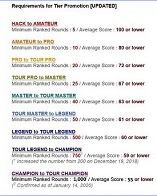
WORLD CLOCK
WORD GAMES PUZZLES , GIF's , ETC Pages 141 - 145
Valley of the Sun Casual Club :: WGT & VOTSCC FORUM & INFO :: WORD GAMES PUZZLES , GIF's , ETC Pages 1 -151
 WORD GAMES PUZZLES , GIF's , ETC Pages 141 - 145
WORD GAMES PUZZLES , GIF's , ETC Pages 141 - 145
- WORD GAMES PUZZLES , GIF's , ETC... WGT.com/forum thread .
Page 1 website thread 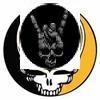


pdb1
25,124 Posts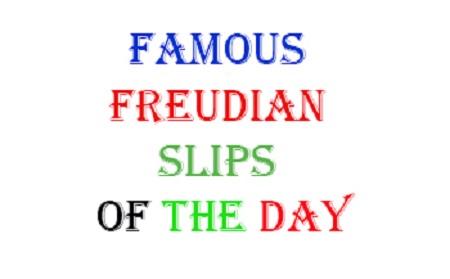
Famous Freudian Slips Explained
“A Freudian slip is saying one thing when you mean your mother.” — A beloved psychology joke.
From political gaffes to television comedies, Freudian slips happen every day. The technical term for this phenomenon is “parapraxis,” which can best be described as a linguistic error (either verbal or written) that expresses unconscious feelings, beliefs, or impulses. Also called a “slip of the tongue,” these mistakes are named after Austrian neurologist Sigmund Freud, the founder of psychoanalysis (the analysis and treatment of emotional disorders). Usually, these slips are harmless and can be attributed to things like tiredness or being distracted. They happen all the time, like when a child calls their teacher “mom” or when a parent calls their child by a sibling’s name.
Other occurrences of parapraxis, such as the ones Freud studied, are a result of unconscious influences. Some can be deeply rooted, usually in desire, which is what Freud was most interested in. A common example is calling a current partner by an ex’s name. Freud first detailed these slips in his 1901 book, The Psychopathology of Everyday Life, where he referred to them as Fehlleistungen (German for “faulty actions”).
More research has been done on Freudian slips over the past century, some aiming to debunk Freud’s beliefs. Experts have yet to collect conclusive evidence that Freudian slips are a direct result of unconscious thoughts, but the topic is still up for debate. In the meantime, pop culture is full of notable examples of Freudian slips that lead to great comedic effectThe One With Ross’s Wedding
One of the most famous Freudian slips in television history happened during season four of the hit sitcom Friends. In the 1998 episode, “The One With Ross’s Wedding, Part 2,” Ross (played by David Schwimmer) demonstrates a familiar Freudian slip: accidentally using an ex-partner's name for a current partner. At the altar, Ross says, “I take thee, Rachel” instead of Emily, the name of his wife-to-be. He does this after Rachel’s appearance at the ceremony takes him by surprise — a perfect example of subconscious thoughts causing a major fiasco.
Ross’s famous line came about thanks to a real slip of the tongue by Schwimmer when he genuinely mixed up the names “Rachel” and “Emily” during an earlier episode’s rehearsal. The producers loved it so much that they decided to use the mix-up as the storyline for the future wedding scene.Meryl Streep Would Like to “Spank…”
During the 2003 British Academy Film Awards (BAFTA), famed actress Meryl Streep took to the stage to accept an award on behalf of Charlie Kaufman, who won Best Adapted Screenplay for Adaption. As Streep read the amusing speech that Kaufman sent to her, she accidentally said, “I would like to spank,” rather than “thank.” The audience roared with laughter as Streep paused and covered her mouth. She went on and fixed her mistake, obviously slightly embarrassed but also seeing the humor in the situation.Raising Money for the Rich
Former U.K. Prime Minister David Cameron made an unfortunate gaffe during Prime Minister's Questions (PMQs) in 2012 when asked about taxation. Cameron explained that the Tories (a British political party nickname) were busy “raising more money for the rich.” Cameron meant to say “for the poor,” but British tabloids poked fun at the slip.Titanic: Leo’s Real-Life Slip Up
Can you guess what line from Titanic was a real slip of the tongue by Leonardo DiCaprio? During the filming of the famous nude drawing scene, Jack (played by DiCaprio), made an awkward mistake with Rose (Kate Winslet). The already tense scene must have gotten to DiCaprio’s head, because instead of directing her to the couch, he said, “over on the bed.” He quickly corrected himself by saying, “the couch,” but the line was so good that the producers kept it in the movie. While the actors claim there has never been anything romantic between them, perhaps DiCaprio’s Freudian slip hinted at what could have been.Ted Kennedy’s Breast … Best Faux Pas
Politicians are famous for on-air fumbles. While many of these word mix-ups are too inappropriate to repeat, one of the more famous political slip-ups came in 1991 during Senator Ted Kennedy’s televised speech. The senator said, “Our national interest ought to be to encourage the breast… the best and the brightest.” Obviously, the senator meant “best,” but anyone can fall victim to those pesky Freudian slips.Austin Powers in Goldmember
The Austin Powers film franchise delighted audiences with its witty writing and off-the-wall antics involving Austin Powers and Dr. Evil (both played by Mike Myers). During a scene in Austin Powers in Goldmember, Dr. Evil notices that everything Powers does is aimed at gaining his father’s approval. After Dr. Evil points this out, Austin Power’s lines keep referring to his father. "Nothing could be my father from the truth!" and "No I dadn't!" Powers hilariously exclaims.
.


pdb1
25,124 Posts
THESE ARE DEFINITLEY A TRIP
7 Palindromes That Will Make Your Head Hurt
The next time you have to go to a boring event, challenge yourself to speak in palindromes! Palindromes are words or sentences that read the same backwards as they do forwards — a symmetrical collection of letters (excluding punctuation and spaces). Composing a palindrome is no easy feat — the longer, the harder. Here are a few prime examples that might hurt your brain, but they'll win you big-time conversational points.Racecar
One word, seven letters
We're starting off small. The classic, one-word palindrome is appreciated by NASCAR fans everywhere.Dammit, I’m mad
Three words, 11 letters
This is one of the internet’s favorite palindromes. It's a pure expression of frustration, either backwards or forwards.Never odd or even
Four words, 14 letters
Another classic, but this palindrome just might send you down an existential tangent.Satan, oscillate my metallic sonatas
Five words, 31 letters
Just because it's the same forward and backward doesn't mean it has to make sense, as in this abstract request for the devil himself. Are metallic sonatas a metaphor? Is the speaker referring to the oscillations of the sonatas’ soundwaves? We may never know.Marge lets Norah see Sharon’s telegram
Six words, 31 letters
Did we miss this palindromic storyline on The Simpsons? Marge is betraying Sharon but letting Norah get in on all the gossip.Doc, note: I dissent. A fast never prevents a fatness. I diet on cod.
Fourteen words, 52 letters
This palindrome might be as indecipherable as the doc's handwriting. It's interesting dietary advice from a patient who has taken nutrition into their own hands.Dennis, Nell, Edna, Leon, Nedra, Anita, Rolf, Nora, Alice, Carol, Leo, Jane, Reed, Dena, Dale, Basil, Rae, Penny, Lana, Dave, Denny, Lena, Ida, Bernadette, Ben, Ray, Lila, Nina, Jo, Ira, Mara, Sara, Mario, Jan, Ina, Lily, Arne, Bette, Dan, Reba, Diane, Lynn, Ed, Eva, Dana, Lynne, Pearl, Isabel, Ada, Ned, Dee, Rena, Joel, Lora, Cecil, Aaron, Flora, Tina, Arden, Noel, and Ellen sinned.
Sixty-three words, 263 letters
Sounds like a good party! It might look like a simple list of people who have sinned, but it is indeed a palindrome.
.


pdb1
25,124 Posts
From Açai to Worcestershire — 13 Food Words You Might be Mispronouncing
Trying new cuisines and expanding your palate are marvelous experiences, but it can be difficult to order unfamiliar foods if you don’t know how to pronounce them. This list is for anyone who has ever looked at a restaurant menu and stumbled over the words in front of them. Whether you want to nail your next “açai” bowl order or show off your “gnocchi” skills at an Italian restaurant, we have you covered.Au jus
oh-ZHOO
This French culinary term means “with the juice.” It typically describes roasted meat served with its own juices (pan drippings). Since the word is French, it’s pronounced “oh-ZHOO” — the “s” is silent. An important cooking note on "au jus" — it’s usually not thickened, which is what makes it distinctly different from gravy.Açai
uh-SIGH-ee
These dark purple berries have become something of a smoothie-shop celebrity. The generally accepted pronunciation for this Portuguese term stresses the final syllable — “uh-SIGH-ee” — but many people still seem to drop the “ee” altogether, which is incorrect.Bouillon
BOO(l)-yahn
Bouillon cubes are tiny, flavor-packed additives to make a delicious broth for soup. The word “bouillon” itself is a French term that translates to “liquid in which something has boiled,” AKA broth. Bouillon comes in cubes, powders, and pastes, and in seemingly all flavors, from chicken and beef to fish and mushroom. It was first introduced in 1908 by the Swiss company Maggi. As for how to say it: Despite the word having a double “l," the “l” sound is nearly silent in the American pronunciation — “BOO(l)-yahn.”Espresso
eh-SPRESS-oh
There’s no “x” in this one, but the coffeehouse hero sometimes gets mixed up with a similar word in American English, “express,” resulting in the incorrect pronunciation “expresso.” Espresso is a strong black coffee made by passing steam through ground coffee beans. It comes from the Italian phrase caffè espresso, meaning “pressed-out coffee.”Chipotle
chuh-POHT-lay
This Mexican hot chili pepper rose to fame after its namesake American fast-food chain opened in the ’90s. “Chipotle” is a Mexican-Spanish word that came from the Nahuatl language of the Aztecs. It’s mispronounced in many ways, but the most common culprit must be “chuh-powl-tay” which swaps the correct placement of the “l” and “t” — the correct pronunciation ends with “lay,” not “tay.”Gnocchi
NYOH-kee
“Gnocchi” comes from the Italian word nocca, meaning “knuckle.” These small Italian dumplings (often made from potatoes) can be found in restaurants and specialty groceries across the country — so why can’t we pronounce the word correctly? This is a tricky term for English speakers because its sounds aren’t very intuitive. The “g” is silent, as in “gnome,” but there is also an extra sound in the first syllable — it isn’t just “NO-kee,” it’s “NYOH-kee.” Americans also sometimes say “NYAW-kee,” which is an incorrect pronunciation of the “o” sound.Gyro
yee-roh or zhihr-oh
Americans are infamous for mispronouncing this one. These tasty pitas are often called “je-ye-rohs” in America, similar to the pronunciation of the word “gyroscope,” but this is incorrect. There are two accepted pronunciations for the dish —“YEE-roh” or “ZHIHR-oh” — neither of which has a “je-ye” sound at the beginning. The word “gyro” came into English in the 1970s when it was adapted from the Greek word “guros,” meaning “turning,” which is how the meat for gyros is made while turning on a spit.Macaron
mak-uh-ROHN
A “mak-uh-ROHN” (rhymes with “loan”) is a small French sandwich cookie that comes in many colors and flavors, while a “mak-uh-roon” (rhymes with “spoon”) is a fluffy round cookie made primarily of egg whites and coconut flakes. Macarons have been around since at least the 1500s, when they were made for the French court. The history of macaroons isn’t quite as clear, but today, they’re a popular Passover treat in many Jewish households.Phở
fuh
This tasty Vietnamese soup is often pronounced as “foe” by Americans — a word that rhymes with “go.” But the correct pronunciation is more similar to “fuh” (rhymes with “duh”). Pho is made of broth, herbs, noodles, and meat. The most popular types of this dish are “phở bo” (beef, pronounced “bah”), “phở ga” (chicken, pronounced “gah”), and “phở chay” (vegetarian, rhymes with “yay”).Poké
poh-KAY
Poké bowls have been popping up on many seafood restaurant menus. The word doesn’t rhyme with “coke” — that accent mark over the “e” means that it should be pronounced as “ay.” Poké is a Hawaiian word that describes a salad made from cubed pieces of raw seafood (especially tuna) that is marinated in soy sauce and sesame oil.Quinoa
KEEN-wah
These edible, starchy seeds are popular in salads and side dishes. The plant was originally grown in the Andes Mountains by the Quechua people, and the word “quinoa” was derived from the Spanish spelling of “Quechua.” Often, the pronunciation of this word is overcomplicated. It’s simply “KEEN-wah,” not “kee-no-ah” or “kwin-no-ah” (or any combination of the two).Sherbet
SHUR-buht
Much to the surprise of many English speakers, there is no second “r” in sherbet. That’s right — it rhymes with “but,” not “burt.” This frozen dessert comes in many fruity flavors and is akin to ice cream. In the U.K., “sherbet” has a different meaning — it's a powder used to add flavor, especially in drinks. According to the Oxford English Dictionary, the misspelling of this word (adding an extra “r”) is so common that it accounts for nearly one-quarter of its citations.Worcestershire
WOO-stuh-shir
Worcestershire sauce was named after a county in west central England. Today, it’s often used in marinades, stir-fries, and salad dressings. It made the Reader’s Digest list of “20 Hardest Words to Pronounce,” but “Worcestershire” is harder to spell than it is to pronounce. The most confusing part of the pronunciation is knowing which letters to skip. From the beginning, skip the first “r” and the “ce,” and barely say the second “r.” It should sound like “WOO-stuh-shir” (rhymes with “fir”).
.


pdb1
25,124 Posts
Belly up to the World of Bartending Lingo
Just as different cultures have their own traditions around drinking alcohol, they came to discover it in just as many ways: Wine was fermented in the [url=https://theconversation.com/when-did-humans-start-experimenting-with-alcohol-and-drugs-161556#:~:text=Humans invented alcohol many times,brewed chicha%2C a corn beer.]Caucasus[/url] by 6000 BCE, and the [url=https://theconversation.com/when-did-humans-start-experimenting-with-alcohol-and-drugs-161556#:~:text=Humans invented alcohol many times,brewed chicha%2C a corn beer.]Sumerians[/url] were brewing beer by 3000 BCE. The Chinese began drinking a fermented beverage of rice, honey, and fruit as early as 7000 BCE, and during the Chinese Sheng Dynasty (1200 - 1046 BCE), they had at least three fermented beverages called chang, jiu, and li. The [url=https://theconversation.com/when-did-humans-start-experimenting-with-alcohol-and-drugs-161556#:~:text=Humans invented alcohol many times,brewed chicha%2C a corn beer.]Aztecs (150 BCE - 650 CE) used the same type of agave plants[/url] used to make tequila today to make an alcoholic beverage called pulque.
Since these ancient beginnings, the culture surrounding the consumption of alcohol has grown in sophistication in the form of craft beers, small-batch natural wines, and of course, many different varieties of mixed cocktails. The language surrounding the bar has deepened, as well. Read on to learn the industry lingo bartenders use when preparing your libations.Cocktail
This term informs so many other words in bartending jargon. A cocktail is an alcoholic drink made up of a spirit, or several spirits, mixed with other ingredients, such as soda, fruit juice, bitters, or cream. These “strong, stimulating, cold American” drinks were first called “cocktails” around 1800. There are multiple possible origins, with the most durable being the French coquetier, meaning “egg-cup.” In New Orleans around 1795, an apothecary named Antoine Amédée Peychaud hosted Masonic social gatherings at his pharmacy where he served mixed brandy beverages in egg-cups. These brandy drinks were reportedly the first to be called cocktails. John Ayto’s Diner’s Dictionary derives the alcoholic word from the literal meaning of “horse with a docked tail,” or one cut short to make it stand up like a rooster’s comb. Because this dressing was given to ordinary horses (as opposed to thoroughbreds), the word came to mean “horse of mixed pedigree” by 1800, which some suggest was extended to drinks by way of “adulteration, mixture.”
The word “mocktail” has appeared in recent years, meaning a beverage made without alcohol. Instead of just plain soda or juice, it’s usually still made of several ingredients and crafted like a cocktail. Bartenders have been adding these faux cocktails to their menus to appeal to patrons who want to sip a specialty concoction, but without the alcohol.Aperitif
An aperitif is an alcoholic drink consumed before a meal, typically to stimulate the appetite. More popular examples include Campari or Aperol, which are usually enjoyed as a spritz, meaning they’re combined in a fizzy cocktail with sparkling wine or soda water. This word appeared in English in 1890 from the French apéritif (“laxative, laxative liqueur”), literally meaning “opening,” as in, to open the appetite. This came from the Latin aperitivius, from aperire, “to open, uncover.”Muddle
To a bartender, “to muddle” is to grind or crush ingredients with a tool called a muddler. This technique is traditionally applied to cocktails like the mojito, where the mint leaves are muddled to the flavor. The word “muddle,” separate from the cocktail bar, appeared in the 1590s, meaning “to destroy the clarity of,” with the sense of “to make muddy” from the 1670s. It’s unclear when it began to be applied to bartending.Jigger
A jigger is a common bartending tool used for measuring ingredients. It looks somewhat like a mini-hourglass, and one side of the tool measures 1.5 ounces, and the other side 1 ounce. This word meant “1.5 ounce shot glass” when it appeared in American English in 1836, and it was common to ask for “a jigger of whiskey” around this time, but at some point bartenders must have adapted the tool to do double duty. The bartending usage potentially came from “jigger” meaning “tiny mite or flea,” given the small volume of the measurement.Dirty
A “dirty” drink will have a variation in color and taste made by changing a core ingredient. The most famous example is the dirty martini, which takes on a salty, briny taste with the addition of olive juice to the traditional gin (or vodka) and vermouth. Many believe this terminology originated in 1901, when New York bartender John O’Connor took inspiration from the traditional olive garnish, first muddling the olive into the drink and later by adding a splash of brine. By contrast, a “dry” martini will include the base spirit of gin or vodka, and very little vermouth, or perhaps none at all.Highball/Lowball
A highball is a drink made from liquor mixed with soda and served in a tall glass, whereas a lowball is a drink made up of water, soda, spirit, and ice, typically served in — naturally — a low glass. Around the late-19th century in England, “ball” meant a “drink of whiskey,” and when it was served in a tall glass, it came to be called a highball. We can assume that “lowball” followed naturally.
.


pdb1
25,124 Posts
Road vs. Avenue vs. Boulevard – What’s the Difference?
Street names are often quite creative, telling you a story of their original inhabitants. You'll find streets named after everything from birds to gemstones, people’s loved ones, and the names of geographical landmarks.
What is more consistent are the categories they fall into. There is some rhyme and reason behind street classification, and it matters a great deal to city planners and map makers. Learn the difference between a street and an avenue, and it just might help you find your next appointment.Roads
By definition, a road is a track that connects two distant points. Simple enough. Roads are supposed to be the link between towns and cities. This rule isn’t too strictly followed — cities are often connected by interstates and contain roads within them. If the strip of pavement doesn't fall into one of the other classifications, just call it a road and you'll be OK.Streets
Sticking with the guidelines, streets are supposed to be roads within cities and towns, with buildings lining the way. They are supported with sidewalks and are often main business areas — such as Main Street or the High Street.Avenues
Avenues are distinct from streets because of the direction they run. Technically, they are supposed to be perpendicular to the streets. They can be meeting spots, like streets, or be more residential areas with shrubbery and landscaping.Boulevards
Boulevards are wide streets, often with a median. Famous examples are Sunset and Hollywood Boulevards in Los Angeles. Boulevards are major areas with lots of space and traffic, but they can be commercial with bars, restaurants, stores, and famous landmarks, or they can be more parklike with greenery lining the boulevard.Follow the Rest of the Roads
Lanes are much more low key. They are narrow roads or streets, usually with no median or shoulder. A way is similar to a lane. A drive is a private or residential road, often with limited access and possibly with no outlet.
Highways, freeways, and expressways are long, multilane roads designed for long-distance, high-speed traffic. The differences between them aren’t exactly clear, but certain geographical regions have preferences.
.


craigswan
30,519 Posts
Good Reading Paul .
.


pdb1
25,124 Posts craigswan:
craigswan:
Good Reading Paul .
Well it might be to some .
.


pdb1
25,124 Posts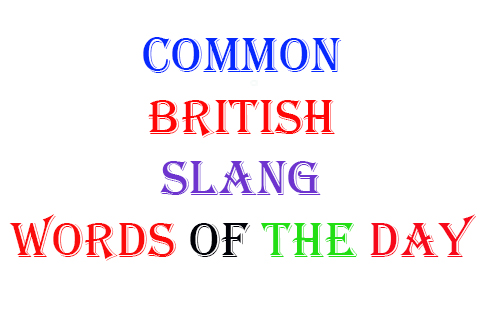
9 British Slang Words You Should Be Using
Across the pond, they have a few words that may sound a tad peculiar to American ears. It's not just tea and crumpets. The Brits have creative slang to describe everything from your mood to your friends to your drinking habits.Bare
"Bare" is an intensifier, effectively meaning "very" or "many" — similar to "hella" in the U.S. It originally came from Jamaican influences, but the word has worked its way into many British dialects.
Example:
I stayed up all night, and now I’m bare tired.Fiver/Tenner
These are fairly self-explanatory for anyone living in England. Two of the most commonly used denominations of currency are the £5 and £10 notes (£1 only comes in coins), colloquially known as fivers and tenners. We'll still give the award for Most Creative Currency to the Canadians, with the loonie and the toonie.
Example:
This bloke tried to charge me a tenner, but I gave him a fiver and ran.
fiver , tenner , loonie , toonie .
Start sayin those loonie tunes might just get us 5 to 10 .Knackered
Pronounced “NAK-erd,” "knackered" means worn out or exhausted. You can be physically exhausted, or an item can be so worn out, it just needs to hit the bin (British slang for trash can).
Examples:
After that gym sesh, I’m completely knackered.
Those shoes are knackered, mate. You’ve not got a new pair in years.
Been there plenty .Reckon
To "reckon" is to suspect or have a theory about something. It's made the journey from Great Britain to the American South, where it maintains the thoughtful usage.
Example:
I reckon it’s going to rain today, and my team’s going to lose.
Sure this ones British ? Thought it was from Oklahoma .Cheeky
A bit of "cheekiness" is a quintessential part of British life. It can be hard to nail down a definition, but one that comes close is "endearingly rude." Being cheeky is often cute, but it can be taken the wrong way, so pay attention to context.
Example:
Your son was very cheeky and grabbed a cookie off my plate when I wasn’t looking.Mate
In the U.S., "mate" is thought of in the sense of a romantic partner, but it's more casual for Brits. It can be used affectionately to mean "friend," and it's also used more informally when referring to or addressing strangers.
Examples:
Johnny has been my best mate since university.
I take sugar in my coffee, mate.
Been using this one forever . ex : CC mates , alt shot mates .Plastered, Trolleyed, Pissed, Battered, Gazeboed
It's often said that language reflects culture. Inuits have many words for snow, and Arabic has myriad words for sand. In Britain, they have a huge volume of words for being drunk. Add “-ed” to any number of nouns or verbs, and your mates will understand you mean drunk.
Example:
After fours hours in the pub, I was completely cauliflowered.
Been there .Cuppa
Playing right into the stereotype, Brits really do love tea. So much so, in fact, that “cup of tea” was eventually shortened to "cuppa." That’s right, you no longer need to clarify what’s in your cup, because everybody already knows it’s tea.
Example:
I had a lovely cuppa with my biscuits.
.


pdb1
25,124 Posts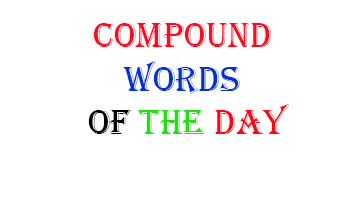
Time for a Refresher: When to Use Compound Words
Some words and phrases are so commonly used in conversation that we may not consider if we’ve used them correctly in writing. Certain compound words, for example, can be transformed into two-word phrases that mean something entirely different than the original word. Case in point: “Apart” means “separated,” while the two-word phrase “a part” refers to a piece of a larger whole. Despite being almost identical, “apart” and “a part” are not interchangeable.
Compound words and their spaced-out counterparts seem to show up particularly with measures of time. Let’s take a look at these common words and phrases to determine when to use which version.Everyday and Every Day
The word “everyday” means “ordinary” or “common” and can be used as an adjective to modify a noun, as in, “She bought shoes for everyday use.” It’s also used less frequently as a noun on its own to describe the same: “A trip abroad is an escape from the everyday.” The phrase “every day” simply means “each day,” with “every” used as an adjective to modify the noun “day.”
The easiest way to distinguish when to use “everyday” or “every day” is to substitute “each” for “every.” For example: “My each day shoes are black” doesn’t work, but “I wear black shoes each day” does. In the first example, the correct version is “everyday.”Anytime and Any Time
In many situations, “anytime” and “any time” can be used interchangeably. There are two exceptions, however, that require the use of the two-word phrase. The first instance is when using a preposition such as “at.” For example, “He is available at any time in June” requires the two-word “any time.” The singular word “anytime” can only be used without the preposition: “He is available anytime in June.” For a memory aid, remember that if the two-letter word “at” is present, the two-word version “any time” must be as well.
The second situation where “any time” is the only correct term is when referencing an amount of time. For example: “I don’t have any time to work on this project right now.”Awhile and a While
This is a tricky one because both the singular “awhile” and the two-word phrase “a while” have very similar meanings. The adverb “awhile” means “for a period of time,” and the noun phrase “a while” means “a period of time.”
When in doubt about which one to use, there are a few tricks to try. If the phrase “for a while” can be substituted in the sentence, then the correct word is the adverb “awhile.” Example: “I cleaned awhile” means the same thing as “I cleaned for a while.” On the other hand, “I went to the store for a while ago” doesn’t make sense, which means the correct version uses the noun phrase “a while,” as in, “I went to the store a while ago.”
To check whether the noun phrase “a while” is correct, try substituting a specific amount of time, such as “an hour” or “a week.” Example: “I went to the store a while ago” correctly turns into “I went to the store an hour ago.”
.


pdb1
25,124 Posts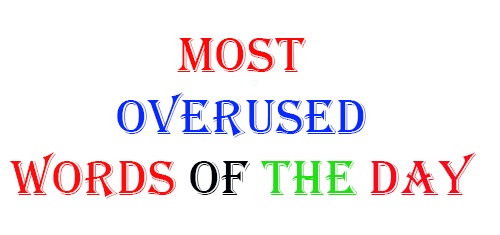
The Most Overused Words in English — And What You Should Use Instead
There are over a million words in the English language alone. Of those, an estimated 170,000 words are in current use in modern vocabulary. Even though there’s an abundance of words at our disposal, people latch onto certain words or phrases and recycle their favorites. Some may like how a word sounds, or perhaps read it and felt it was a perfect descriptor. Or maybe it’s a word that seeped into popular culture, appearing in seemingly every conversation.
Instead of repeating yourself (again), let’s look at some synonyms for the most overused words to use as substitutes.Amazing
If everything is “amazing,” then nothing is. The actual definition of this word is “causing great surprise or wonder.” Yet “amazing” has been hijacked to describe everything from a much-needed vacation in an exotic locale to a tasty latte — not exactly equals on the wonder scale.
Maybe it helps to think about whether something truly is “amazing,” or if it just sparks joy in that moment. Consider using an alternate adjective in place of “amazing,” such as “fascinating,” “incredible,” “stunning,” “unbelievable,” “magnificent,” or “prodigious” (if you want to show off a little).Literally
For diehard fans of How I Met Your Mother, it’s hard to hear this word being misused and abused without recalling Robin telling Ted, “I literally want to rip your head off,” and Ted yelling back, “You mean figuratively!” This word crept into the popular lexicon around the mid-aughts as a way to emphasize strong emotions or reactions. It’s easy to fall back on in conversation, but “literally” deserves a figurative rest from overuse. Try “precisely,” “actually,” “plainly,” or the old standby of “really.”Crazy
This can seem like a catch-all adjective for everything from “extremely enthusiastic” to “extremely annoyed” to downright “foolish.” People often use it as an adverb, too, as in “I’ve been crazy busy,” or the informal “I was laughing like crazy.” But the word also has a stigma attached to it, with a connotation related to mental health. Try to challenge your casual use of this term, especially when describing any behavior that doesn’t seem to fit a standard of “normal.” Pull out a more descriptive synonym. Maybe it’s more appropriate to use “passionate,” “excited,” “bonkers,” “absurd,” or a silly option like “bananas.” With over a million words at your disposal, are plenty of better options.Hack
The word “hack” is definitely one of the worker bees of the English language. With both verb and noun usages, it can mean rough cuts to an object, a writer who produces unimaginative work, how someone is coping, and a horse used for noncompetitive riding.
But none of those are why “hack” is overused. As PC and internet usage became ubiquitous over the last quarter-century, it took on yet another meaning: “to use a computer to gain unauthorized access to data in a system.” In recent years, the word has been applied to any quick, novelty technique that helps people save time and be more efficient — often called a “life hack.” Tech startups, the self-improvement community, and many entrepreneurs casually toss this word around as if everything their business does is some kind of “hack.” At this point, it’s just another corporate buzzword. “Tip,” “trick,” or “how-to” work just as well.Great/Fine/OK
“That’s great.” “OK.” “Sure, that’s fine.” These middling adjectives are used when there’s nothing to say, or maybe when the speaker is trying to avoid casting an opinion. Instead of falling back on a wishy-washy statement, take a minute to decide what you really want. Unless it’s where to eat dinner — that’s tough for everyone
Last edited by Paul on Fri 17 May 2024, 3:45 pm; edited 3 times in total
 142
142



pdb1
25,124 Posts
Finally turned the page . Lol .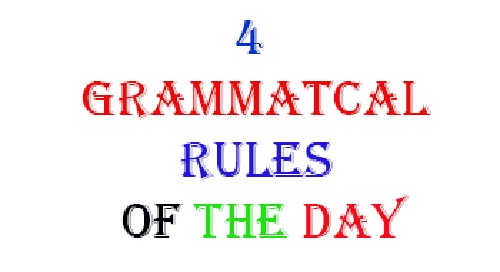
4 Grammatical Rules That Always Stick Together
In English, some grammatical concepts depend on each other. For example, an indirect object doesn’t work in a sentence without a direct object. Likewise, a dependent clause doesn’t make sense unless paired with an independent clause. In other words, it’s hard to understand one of these concepts without learning about the other. Here are four examples of grammatical rules that almost always work together.Direct and Indirect Objects
A complete sentence typically has a subject (noun or pronoun) and a predicate (verb). Some sentences also have an object. A direct object is the thing receiving the action of the verb. For example, in the sentence, “Angela threw the ball,” the direct object is “the ball.” That’s because it’s the item being acted upon (thrown) by the subject (Angela).
Here’s a quick tip for determining the direct object: Ask yourself “[verb] what?” or “[verb] whom?” In the previous example, the question would be, “Threw what?” and the answer would be “the ball.”
Indirect objects are slightly different because they are affected not by the verb but by the direct object. Instead of receiving the action of the verb, they receive the action from the direct object. Here’s the same sentence with a minor tweak: “Angela threw the ball to Marco.”
There’s a trick to finding the indirect object, too. Ask yourself: “to whom?” “for whom?” or “for what?” In the above sentence, the ball (the direct object) was thrown “to whom?” The answer is “to Marco.” So the indirect object here is Marco.
It’s essential to know a sentence can have a direct object on its own, but it cannot have an indirect object without a direct object.Common Nouns vs. Proper Nouns
In grammar basics, a noun is a person, place, thing, or idea. A common noun is just that — the general designation for a person, place, thing, or idea, such as “president,” “river,” or “movie.”
In contrast, a proper noun is a specific name for a particular noun, such as “Abraham Lincoln,” the “Mississippi River,” and “Star Wars.”
The most significant difference between these two types of nouns is capitalization. Proper nouns are always capitalized, no matter where they appear in a sentence. Conversely, common nouns aren’t typically capitalized, unless they’re at the beginning of a sentence.Independent vs. Dependent Clauses
A clause is a part of a sentence that contains a subject and a predicate. As its name suggests, an independent clause can be a full sentence. It’s a complete thought all by itself.
A dependent clause relies (or depends) on the main clause to help it make sense — it doesn’t form a complete sentence on its own. Sometimes it’s connected to the main (independent) clause by a coordinating conjunction (such as “because,” “since,” or “though”) or a relative pronoun (such as “that,” “what,” or “which”). The clauses can also be connected with punctuation, such as a comma or an em dash.
Here are some examples of both types of clauses and how they form sentences:
Full sentence: Although it’s snowing, we are going on a hike.
Dependent clause: Although it’s snowing
Independent clause: We are going on a hike.
Full sentence: Mike started to laugh when Janice threw a snowball.
Dependent clause: when Janice threw a snowball
Independent clause: Mike started to laugh.
Notice how the independent clauses read as their own short sentences, while the dependent clauses don’t make sense on their own. Two independent clauses can also be joined together with conjunctions, such as “and,” “but,” “for,” “nor,” “or,” “so,” or “yet.”Active vs. Passive Voice
English has two grammatical voices: active and passive. Active is generally preferred in writing, but passive can also be useful in certain situations.
In a sentence using active voice, the subject is performing the action. It’s the “actor,” which is performing the action of the verb.
Dana watched the movie.
Our family loves playing board games
Monroe donated money to the school.
Sentences in active voice have a direct and clear tone. These statements are not overly wordy or complex, and the message is usually short, concise, and easy to understand.
Passive voice, on the other hand, is all about the verb. That means, in sentences using passive voice, the subject has an action performed on it. Here are examples of the earlier sentences in a passive voice:
A movie was watched by Dana.
Playing board games is loved by our family.
Money was donated to the school by Monroe.
Notice how these statements are less clear and straightforward. The speaker may seem ambivalent, submissive, or removed. Writers might use passive voice to seem objective or neutral on a subject, or when they want to convey an air of mystery.
.


pdb1
25,124 Posts
Avoid These Texting Faux Pas
While much of our digital communication occurs via texting, the medium has not been mined for etiquette rules the way letter writing was in the days of Emily Post. Writer and linguistics professor John McWhorter acknowledges that “just as rehearsed speeches are analogous to formal writing, casual speaking is analogous to text.” This is not to lessen the importance of casual speaking — in fact, this type of communication dominates most of the relationships we’ll have in our lifetimes. So with that in mind, how does one text well? While casual, there’s still plenty of room for miscommunications and faux pas.Don’t End With a Period, Period
Most texting etiquette is rooted in one dictum: Exercise caution with punctuation. In texting, periods don’t mean what they mean in other forms of written communication. Because each thought is contained in its own bubble, ending a text with a period gives an odd sense of coldness or formality to the message, which may make the recipient think you are mad at them, depending on the nature of your relationship. McWhorter declares, “The mid-text period is still fair game. Only when it is the last character in a message does the period assume its tonal heft.”
Texting is as close as we can get to speaking in real life, digitally. Because so much is missing — the contextual mood received from hearing the speaker’s voice, namely, as well as their facial expression and body language — people might read the wrong thing into what you’re trying to say. In general, it seems that being exceedingly casual communicates an easygoing warmth.Okay / Ok / Kk / K
Be cautious with your “okays.” While typing out “okay” or merely “ok” is generally safe, some folks think it better to go with a very casual “kk,” for the same reasons we drop periods — you don’t want to seem excessively formal. Interestingly, the briefest form, “k,” is the most dreaded, because its extreme brevity makes your tone appear clipped or curt. In general, save any version of an “OK” for low-stakes back-and-forths, such as making logistical plans. In the world of emojis, a better option than an easily misinterpreted “ok” is a thumbs-up emoji or even something more personal like a dancer or coffee cup to respond to making weekend plans.Hello?
If you need to follow up on a text to someone, perhaps because the information you’re seeking is time-sensitive, do so thoughtfully. Texting someone “hello?” comes across as impatient and snippy. While it may seem like we’re all attached to our phones 24/7, some folks aren’t. Or they have good boundaries about not using personal devices while at work. If you need to check in on an unanswered message, it might be helpful to include why you’re following up, and throw in a “please” and “thank you.” Alternatively, dial their number and use your voice. Some folks just aren’t texters.We Need to Talk
This phrase is so dreaded that it’s a cliche — it’s almost always a harbinger of bad news. No matter whether you are the bearer of good or bad news, it never bodes well to communicate this level of tension in a text message. The recipient will likely spend the time until you are able to talk wondering what it is you need to talk to them about, and imagining worst-case scenarios. If you have good news to share, communicate that: “I have good news for you! When can we talk?” If the news isn’t pleasant, there’s no need to prepare them. Just wait until you are having a conversation, either digitally or in person.Are You Free on X?
Maybe it’s not quite a faux pas, but it’s still polite to be up front about why you’re asking if someone is free. Asking if a friend is free for brunch is a lot different than asking for a big favor they may not have the capacity to provide. The open-ended question has a way of making people feel trapped into saying yes.
.


craigswan
30,519 Posts
Your always a good read paul .
Meme was funny .
.


pdb1
25,124 Posts
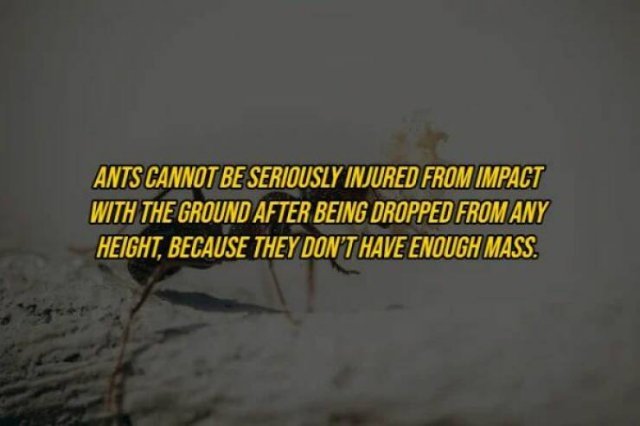
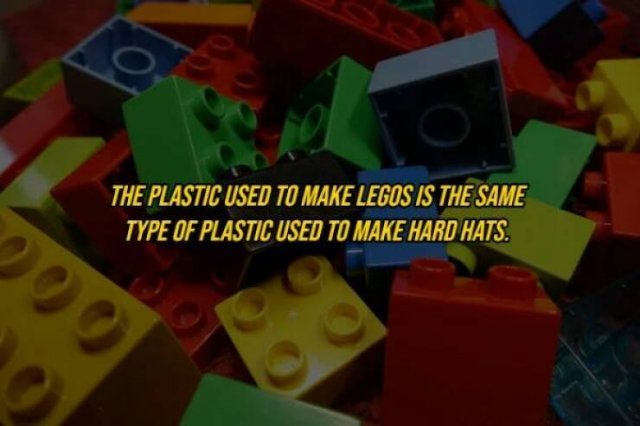
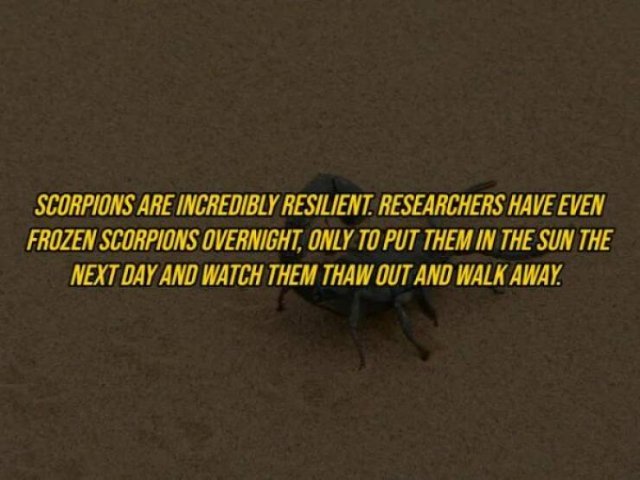
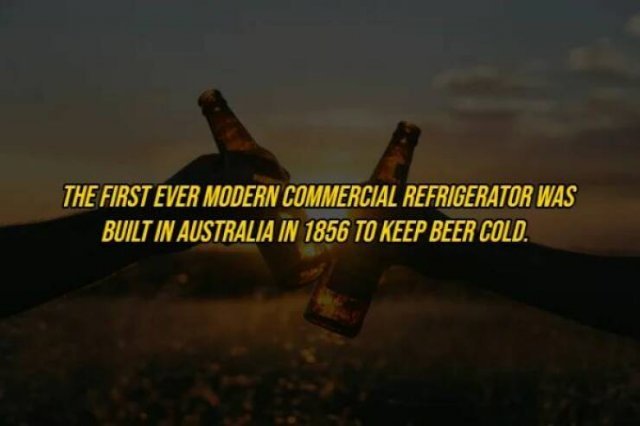

.


pdb1
25,124 Posts
I can't get in trouble for this one .
.


pdb1
25,124 Posts
.


craigswan
30,519 Posts
.


craigswan
30,519 Posts
.


craigswan
30,519 Posts
Guess who .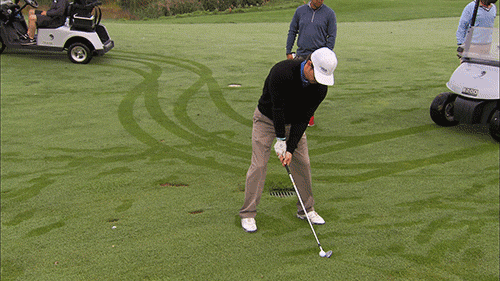
.


pdb1
25,124 Posts
 143
143



pdb1
25,124 Posts
.


pdb1
25,124 Posts
“Trend” Is a Trendsetter in Language
The word “trend” has numerous usages in modern English, some rather neutral and others specific to a certain area of language, such as technology (“What’s trending on Twitter right now?”) or fashion (“Early 2000s fashion is the latest trend”). With these of-the-moment connotations, it may be surprising to learn of the word’s more humble, ecological roots.Trend as Tendency
At its most neutral, “trend” simply means “a general direction in which something is developing or changing.” It can be used as a noun or verb and sometimes forms the base of a whole new word (“trendsetter”). In addition to its modern fashion and technology connotations, it can also pertain to business and the economy, as in, “Unemployment has been trending down.”
The English word first appeared in the 1590s, meaning “to run or bend in a certain direction,” referring to the literal course of rivers, coasts, and other natural phenomena. It comes from the Middle English trenden, “to roll about, turn, revolve,” and from the Old English trendan, meaning the same thing. That word comes from the Proto-Germanic word trandijan, meaning “round lump, ball,” which comes from the Old Frisian trind (Frisian being an archaic West Germanic language thought to be most similar to modern-day English).
It wasn’t until 1863 that its more modern, figurative usage — “to have a general tendency” — was first recorded, but that still had geographical connotations in terms of the borders of nations, rivers, and coasts. That meaning persists today with statisticians and economists, if in less popular or flashy contexts than its fashion and Twitter counterparts.Fashion as Trendsetter
According to Google Ngrams, the word’s usage began a slow, upward trajectory in the late 19th century. It peaked in the mid-20th century, when its most popular contemporary usage as a fashion term appeared in 1950. “Trendsetter” was coined in 1950 and “trendy” in 1962.
The word’s roots pertaining to something as slow-moving as the way coastlines can shift over time lends itself to the contemporary usage. Trends aren’t something that occur overnight. Examining an economic trend such as unemployment requires studying weeks, months, or years of data. And tracing a fashion trend requires placing the style in context over time — is it a return from another decade? Did it originate with a popular movie or TV show? What other designers and collections does it reference?
Given that fashion trends have a way of circling back around — for example, many older millennials fear Gen Z’s penchant for low-rise pants, a trend they hoped would be forever relegated to the early 2000s — we come back to the word’s ancient Germanic roots, “round” or “circumference.”#Trending
Given that Twitter launched in 2006, a spike for the word “trend” might have been expected, but curiously enough, Google Ngrams shows a downward current beginning in the 1980s. However, the word continued to evolve as Twitter gave us “trending,” a verb that has become so ubiquitous as to be used even by those who don’t partake in social media discourse.
There is nothing subtle or incremental about the current usage in the Twittersphere — something can “trend” on the platform in the space of a few hours and immediately jump to fodder for the 24-hour news cycle. So quickly does it move that by the time a “trending” topic hits the news, it might no longer be trending anymore in online spaces.
In that way, maybe Twitter is our current, most quintessential trendsetter. It has the power to set into motion a trend that might slowly make its way through the cultural zeitgeist, such as the way a style may be born on a high-fashion runway and eventually makes its way to the bargain bin at a fast-fashion store. Drawing back to the course of a river carving into stone, no trend is instantaneous.
.


pdb1
25,124 Posts
.


pdb1
25,124 Posts
.


pdb1
25,124 Posts
1. SPORT: Which of these is NOT a professional sports team based in or associated with San Francisco, California?
Warriors
49ers
Rams
Giants
.


garyk49
2,307 Posts pdb1:
pdb1:
1. SPORT: Which of these is NOT a professional sports team based in or associated with San Francisco, California?
Warriors
49ers
Rams
Giants
Rams
.


craigswan
30,519 Posts
.


craigswan
30,519 Posts
mark wahlberg .
.


pdb1
25,124 Posts garyk49:
garyk49: pdb1:
pdb1:
1. SPORT: Which of these is NOT a professional sports team based in or associated with San Francisco, California?
Warriors
49ers
Rams
Giants
Rams
Correct .
The Rams are a National Football League (NFL) franchise based in Los Angeles, California. The "football" here is of course U.S. football, not what people in the U.S. call "soccer." The 49ers also play in the NFL as the San Francisco 49ers. For most of their storied, five-Super Bowl-winning history they were physically located in San Francisco. Now they play their games a bit south of the city in Santa Clara.
The San Francisco Giants are a Major League Baseball franchise that moved to San Francisco from New York City in 1958. They have won eight World Series titles. The Golden State Warriors are a professional basketball team playing in the National Basketball Association (NBA). They have won the NBA championship seven times in their history (two of the seven coming when they were the Philadelphia Warriors, before they moved in 1962),
.


pdb1
25,124 Posts
 144
144



pdb1
25,124 Posts
.


craigswan
30,519 Posts
If he had discovered the land, it would be known as Vespucciland. .
The country was named after Richard Ameryk, a Bristol merchant who paid for the voyage of discovery, several years before Vespucci..
In addition, Christopher Columbus never set foot in North America..


pdb1
25,124 Posts craigswan:
craigswan:
If he had discovered the land, it would be known as Vespucciland. .
The country was named after Richard Ameryk, a Bristol merchant who paid for the voyage of discovery, several years before Vespucci..
In addition, Christopher Columbus never set foot in North America..
Correct .
.


pdb1
25,124 Posts
23.02.2023
12:40:16
This Day in History: February 23Featured Event

Alamo besieged by Santa Anna's Mexican army
This day in 1836, during the Texas war for independence, Mexican General Antonio López de Santa Anna began a siege of the Alamo, which was captured after 13 days and which became for Texans a symbol of heroic resistance.
23.02.2023
12:45:24Featured Biography
Carlos Santana
Mexican-born American musician Carlos Santana won eight Grammy Awards for Supernatural, tying the record set by Michael Jackson.
American musician
Carlos Santana, (born July 20, 1947, Autlán de Navarro, Mexico), Mexican-born American musician whose popular music combined rock, jazz, blues, and Afro-Cuban rhythms with a Latin sound.
David Brown and Carlos Santana
Santana began playing the violin at age five; by age eight, however, he had switched to the guitar. As a teenager, he played in bands in Tijuana, Mexico, where he was exposed not only to the local norteño music but to blues, especially to guitarists T-Bone Walker and B.B. King. Although his family moved to San Francisco in the 1960s, Santana returned frequently to Tijuana. Influenced by the San Francisco Bay Area’s burgeoning rock scene, in 1966 he formed the Santana Blues Band, which came to the attention of rock music impresario Bill Graham. The band began performing at the legendary club Fillmore West, and, though largely unknown, it triumphed at the Woodstock festival in 1969.
Signed to Columbia, Santana’s band—by then known as Santana, “Blues Band” having been dropped from the name—released a series of hit albums that infused rock with a Latin feel rooted in Afro-Cuban rhythms and that centred on Carlos’s extraordinary lead guitar playing, characterized by the distinctive sustaining of individual notes that became his trademark. Santana, featuring the top-10 hit “Evil Ways,” peaked at number four on the album charts in 1969. Abraxas, with the hits “Black Magic Woman” and “Oye Como Va,” reached number one the next year. Santana III (1971) and Caravanserai (1972) followed.
Over the next two decades, however, the group’s output was more uneven—and less commercially successful—as Santana led ever-shifting personnel toward a jazz-rock fusion that reflected his admiration for Miles Davis and John Coltrane and resulted in collaborations with jazz artists such as Buddy Miles, Stanley Clarke, and John McLaughlin. Having earlier shown an interest in spirituality, particularly the philosophy of Sri Chinmoy, Santana became a born-again Christian in 1992. Meditation and mysticism became central to his life, and he began to see himself as a musical shaman whose pursuit of songs that offered hope and healing culminated in Supernatural (1999). Supernatural—crafted with the support of such notable collaborators as pop rocker Rob Thomas of Matchbox Twenty, hip-hop luminary Lauryn Hill, fellow guitar legend Eric Clapton, and former Arista Records head Clive Davis—helped Santana launch an important comeback. In 2000 he won three Latin Grammy and eight Grammy awards—including album of the year for Supernatural and song of the year for “Smooth.”
Among the band’s later releases were the albums Shaman (2002), which won a Grammy for “The Game of Love”; All That I Am (2005); Corazón (2014); and Santana IV (2016). “Dar um jeito (We Will Find a Way),” a collaboration with Wyclef Jean, was the official anthem of the 2014 World Cup. In 2017 Santana and R&B legends the Isley Brothers released Power of Peace. The critically praised Africa Speaks (2019), the group’s 25th album, was made with producer Rick Rubin and Spanish singer and songwriter Concha Buika.
Santana’s lasting contribution was marked by his group’s induction (1998) into the Rock and Roll Hall of Fame. In 2013 he was named a Kennedy Center honoree.
.


pdb1
25,124 PostsON THIS DAY 2 24 2023
.


pdb1
25,124 Posts
.


pdb1
25,124 Posts
.


craigswan
30,519 Posts
All your presidents promise New Deals that never materialise .
Many people remarked that the New Deal programs reminded them of alphabet soup .
Roosevelt .
.


craigswan
30,519 Posts
Who said this .
.


pdb1
25,124 Posts
 craigswan:
craigswan:
All your presidents promise New Deals that never materialise .
Many people remarked that the New Deal programs reminded them of alphabet soup .
Roosevelt .
Correct .
 145
145



pdb1
25,124 Posts
Which author wrote "Murder at Heartbreak Hospital" in 1993?
Richard Matheson
Stephen King
Henry Slesar
Robert Swindells

.


garyk49
2,307 Posts
It's a nerve.
.


pdb1
25,124 Posts craigswan:
craigswan:
Who said this .
Gee . Could it be Jack Nicklaus .
.


pdb1
25,124 Posts
You are right .
.


pdb1
25,124 Posts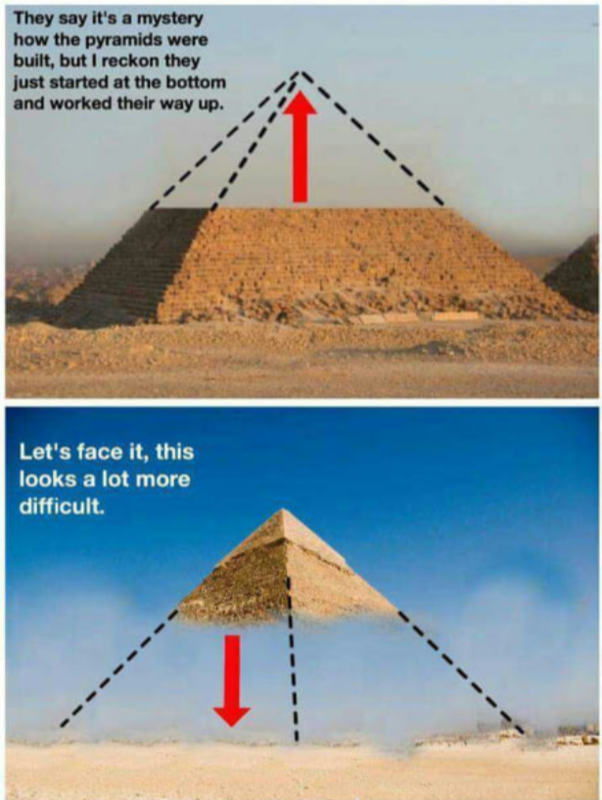
.


pdb1
25,124 Posts
.


pdb1
25,124 Posts
.


pdb1
25,124 Posts
ENTERTAINMENT: Complete the title of a well-known comic-strip: "Hagar the ___"
Hungry Hippo
Hunted
Hoffmeister
Horrible
LITERATURE/CELEBRITIES: Which singer wrote the 2001 autobiography "Learning To Fly"?
Victoria Beckham
Britney Spears
Cher
Pink
VIDEO GAMES: In the "Super Mario" series, Wario is the bad version of Mario. Who is the bad version of Luigi?
Ruigi
Waluigi
Wuigi
Igilu
TELEVISION: In "The Simpsons", what was the name of the elephant Bart got in "Bart Gets An Elephant"?
Stompy
Leafy
Mr. Big
Stampy
.


pdb1
25,124 Posts
.


pdb1
25,124 Posts
 Similar topics
Similar topics» WORD GAMES PUZZLES , GIF's , ETC Pages 146 - 151
» WORD GAMES PUZZLES , GIF's , ETC Pages 1 - 21
» WORD GAMES PUZZLES , GIF's , ETC Pages 121 - 140
» WORD GAMES PUZZLES , GIF's , ETC Pages 46 - 93
Valley of the Sun Casual Club :: WGT & VOTSCC FORUM & INFO :: WORD GAMES PUZZLES , GIF's , ETC Pages 1 -151

 Events
Events







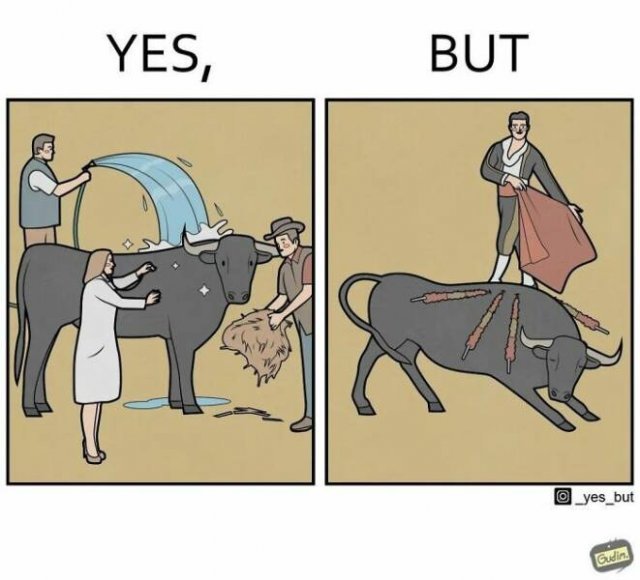
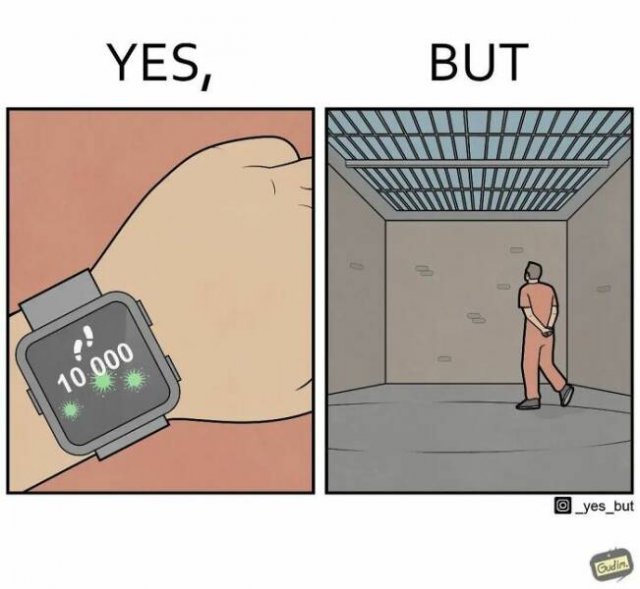
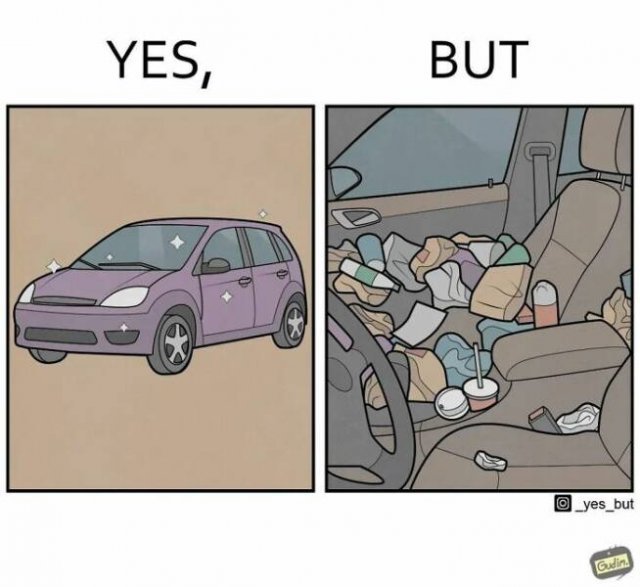
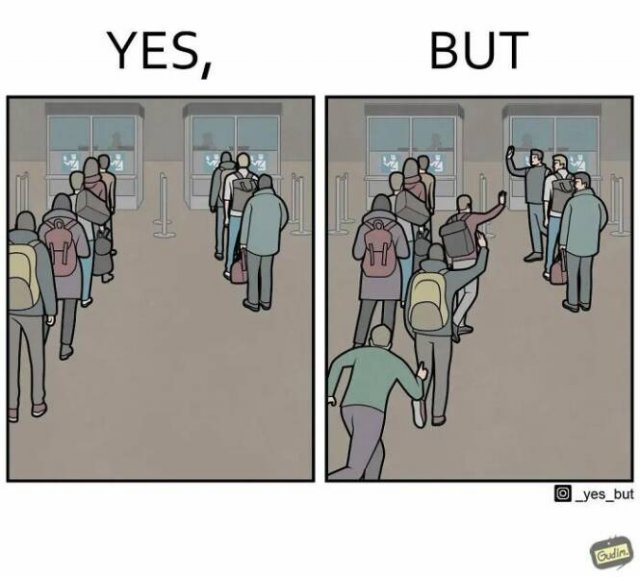
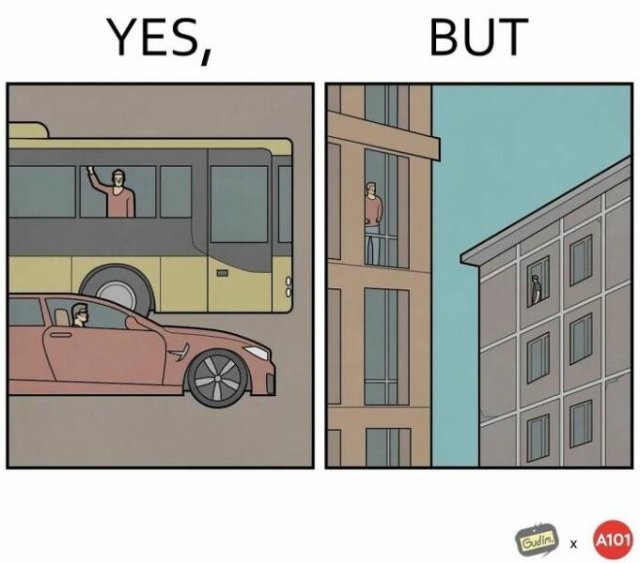
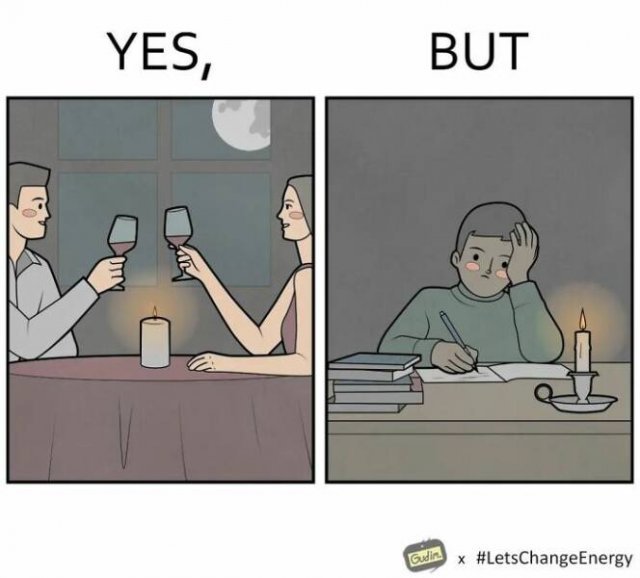
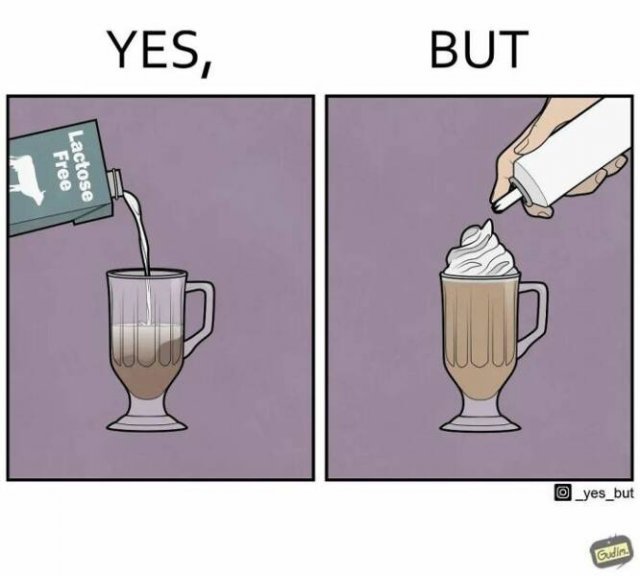
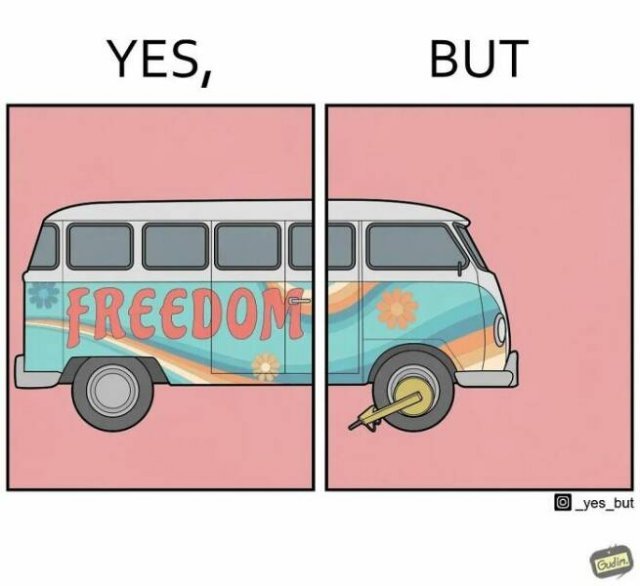


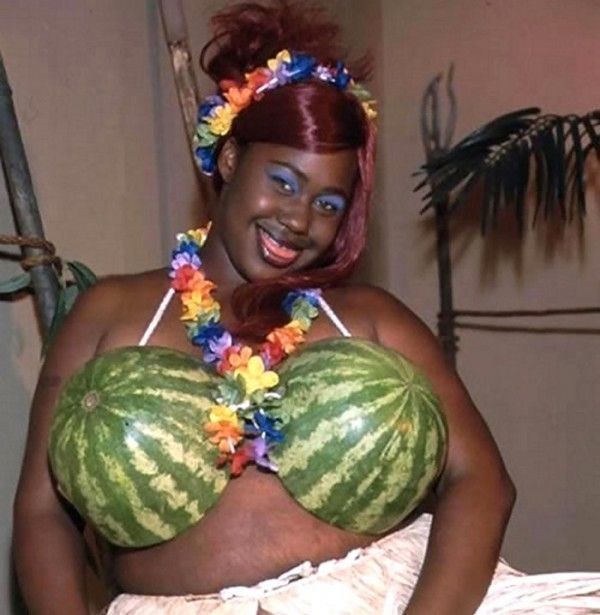




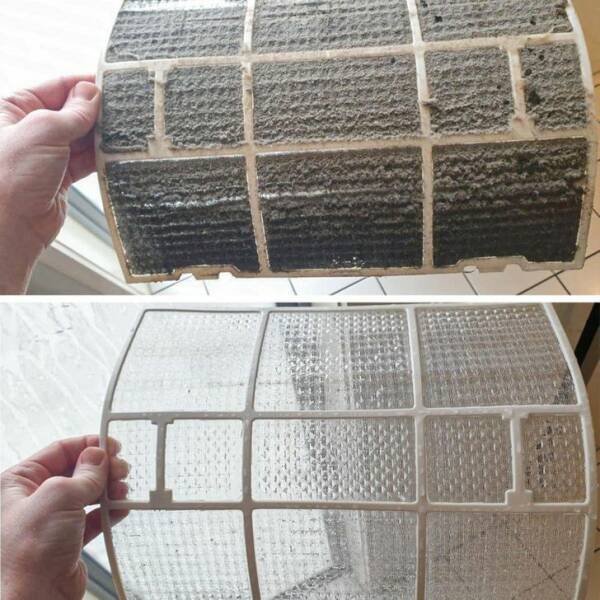



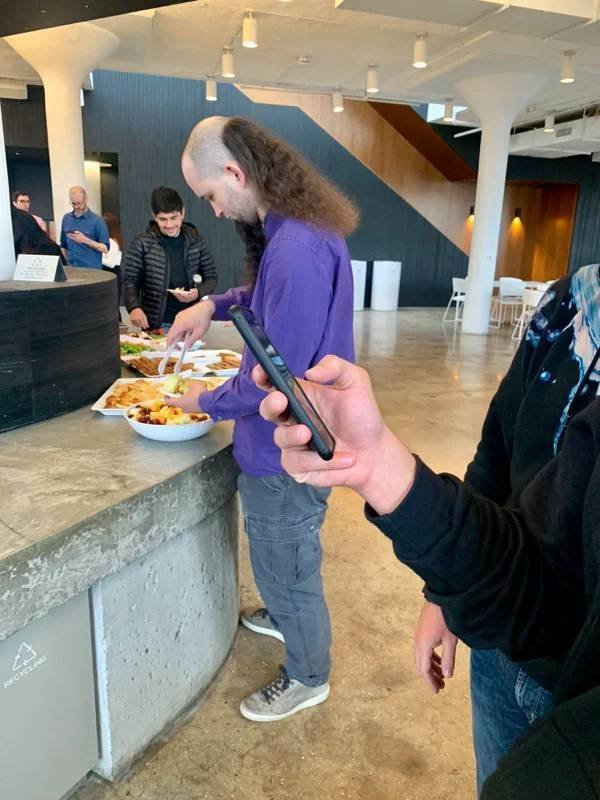


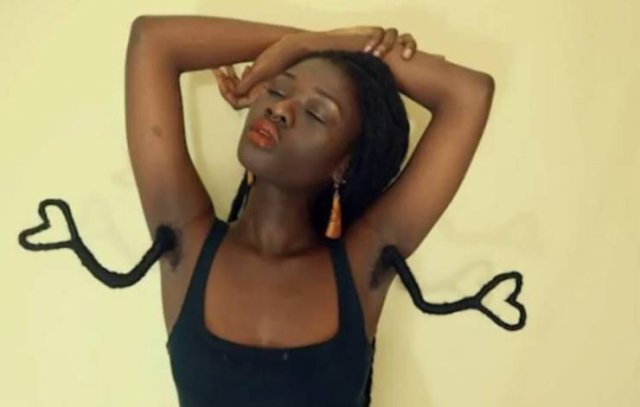
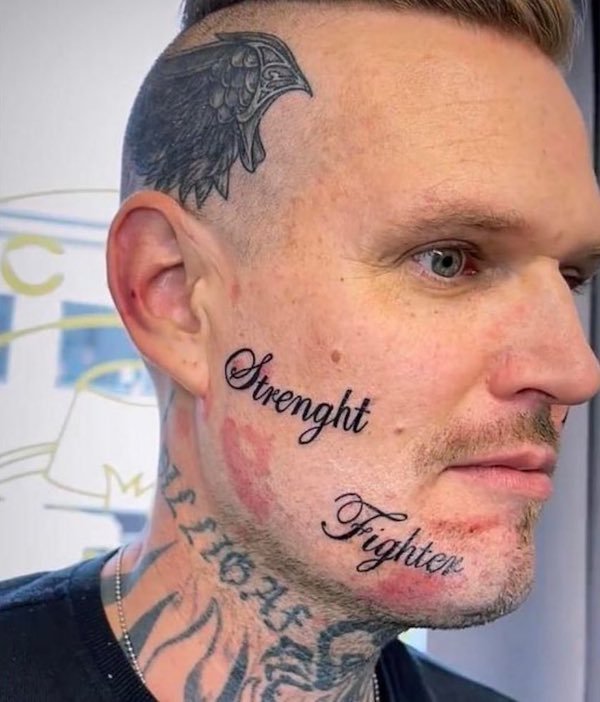














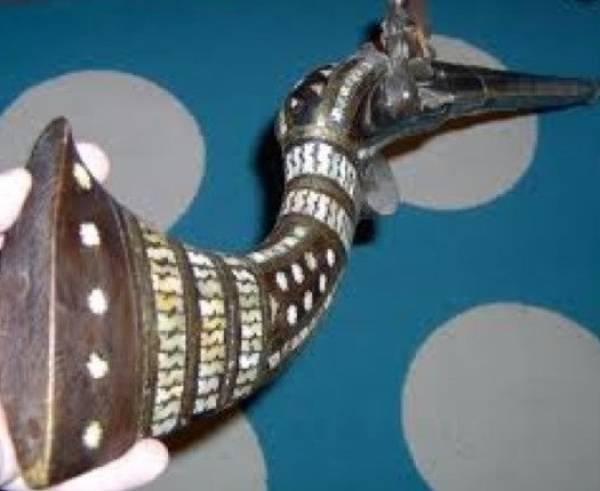


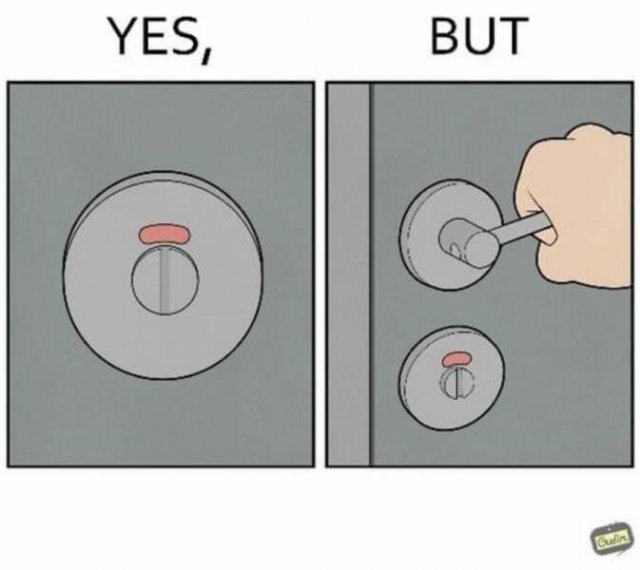

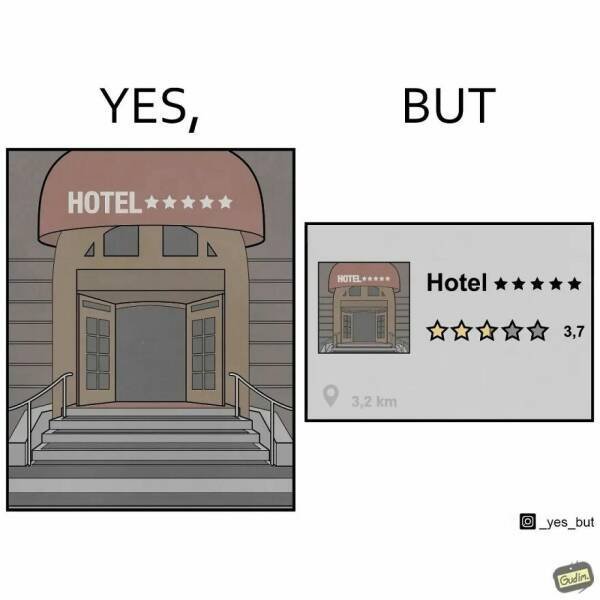
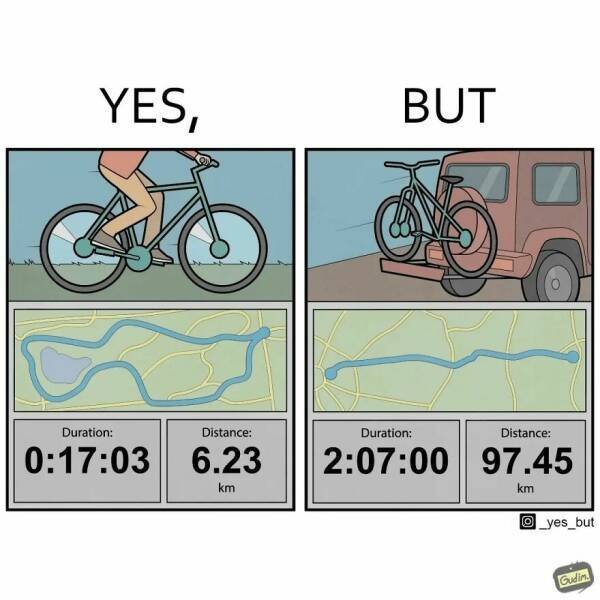
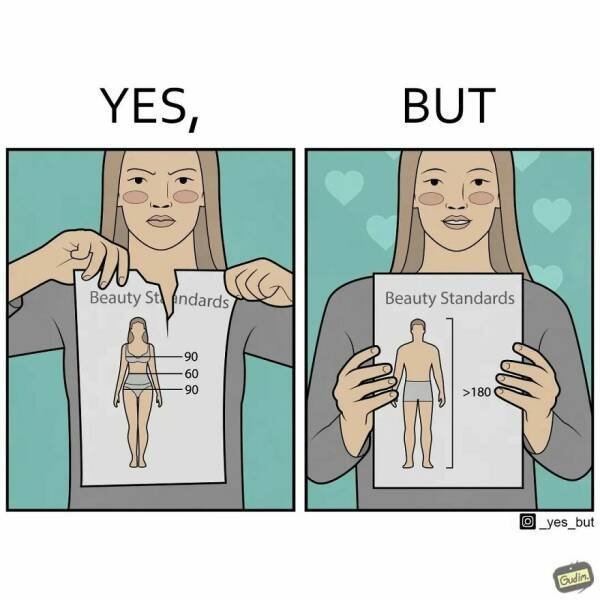
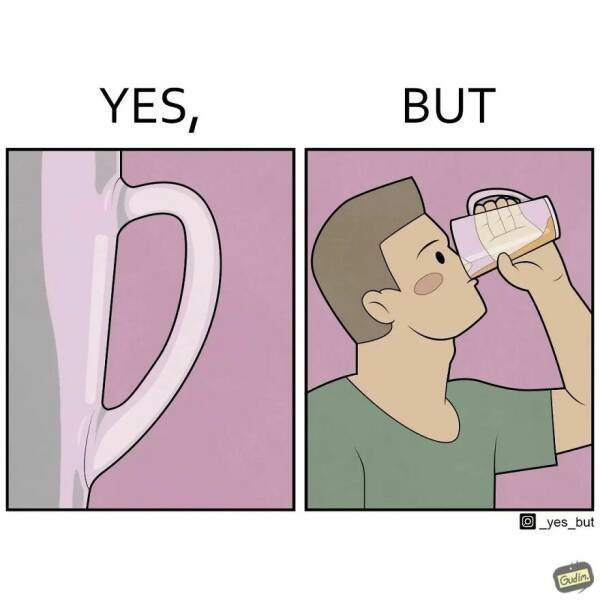
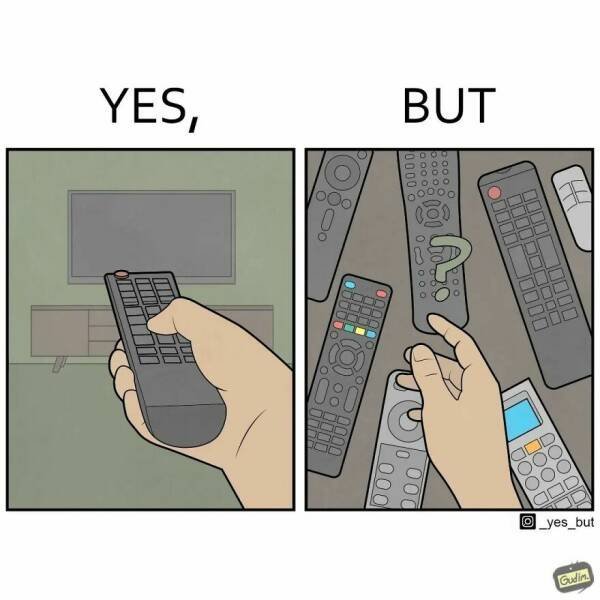



















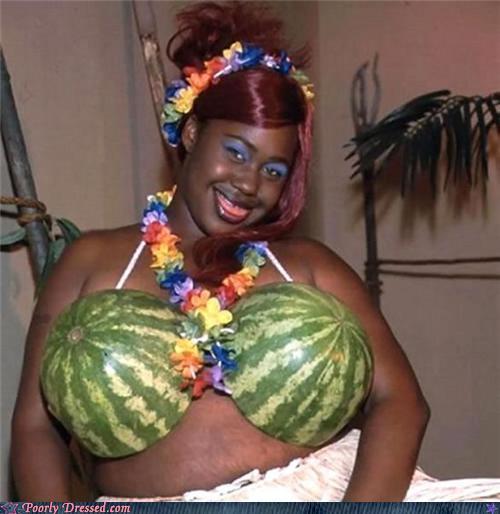
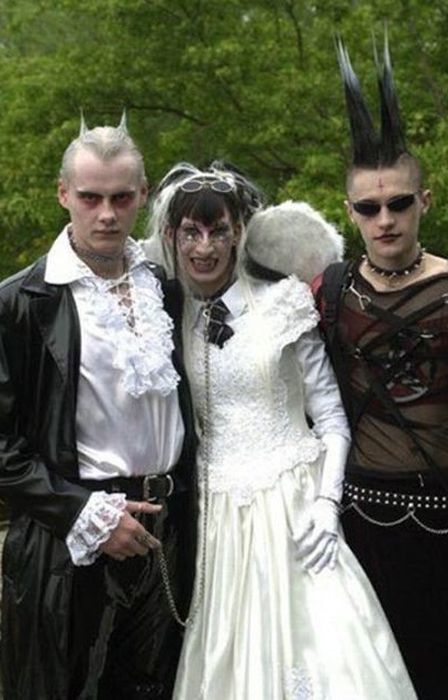








» WGT POETRY , QUOTES , MOMENTS , & MORE
» Word Genius Word of the day * Spindrift *
» Tales of Miurag #3 in Paperback Patreon Story in December!
» Disneyland vacation
» Download WhatsApp
» WORD DAILY Word of the Day: * Saponaceous *
» Word Genius Word of the day * Infracaninophile *
» THE TRUMP DUMP .....
» INTERESTING FACTS * How do astronauts vote from space? *
» WWE Crown Jewel is almost here! Don't miss the action LIVE today only on Peacock!
» *POPULAR CONTENTS* Valley of the SUN Official Newsletter
» NEW GUEST COUNTER
» Merriam - Webster Word of the day * ‘Deadhead’ *
» WWE Universe: Your Crown Jewel Broadcast Schedule has arrived!